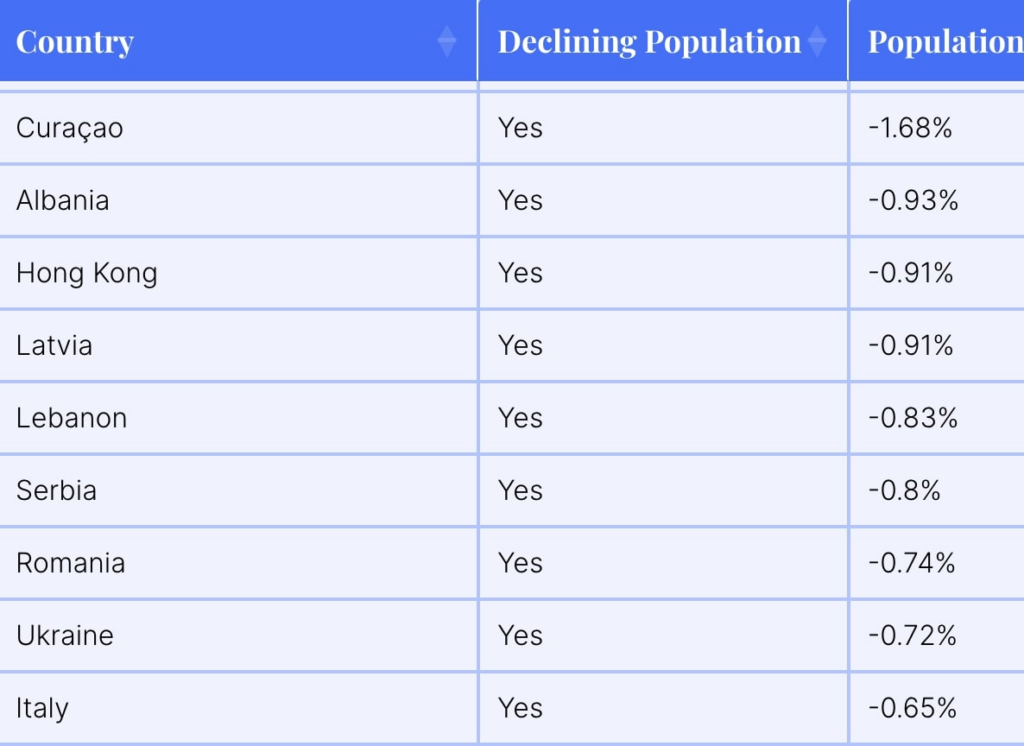Link:https://www.nextbigfuture.com/2023/07/tracking-the-population-crisis.html
Graphic:

Excerpt:
South Korea only had 18,988 births in May, 2023 which is the lowest births since the agency started compiling the data in 1981. This was a drop of over 5% from May 2022. The number of deaths in the country moved up 0.2 percent over the period to 28,958, resulting in a natural decrease in population by 9,970. South Korea is losing about 120,000 people per year and the total birth is about 230,000 per year which is down from 705,000 from 1990 to 1994 and 669,000 from 1995 to 1999. However, after the 1997-98 Asian Economic Crisis, the number plummeted to an average of 500,000 in the early 2000s.
Korea’s fertility rate dropped to a new low of 0.78, the lowest among countries in the Organization for Economic Cooperation and Development, and possibly the world.
Korea would need to triple its annual births to 700,000 per year to maintain and stabilize its population.
Statistics Korea expected people aged 65 and above will take up 20 percent of the population in 2025, marking a sharp rise from 18.4 percent estimated for this year.
The Korean government sees the next five years as critical to increasing fertility and salvaging the country.
Korea’s government is considering easing the burden of gift taxes exclusively for newlywed couples, by raising the minimum amount of cash they can receive from parents without being taxed to either 100 million won ($76,000) or 150 million won.
Several municipalities have also introduced similar programs. Seongnam, Gyeonggi Province, held two couple matchmaking events in July for unmarried men and women who either live or work in the region. As a result, 39 couples found a match.
….
Japan is the world’s first “hyper-aged” country, where at least 21 percent of the population is older than 65, with projections predicting 40 percent of the population will be over retirement age by 2050.
Author(s): Brian Wang
Publication Date: 26 July 2023
Publication Site: Next Big Future



